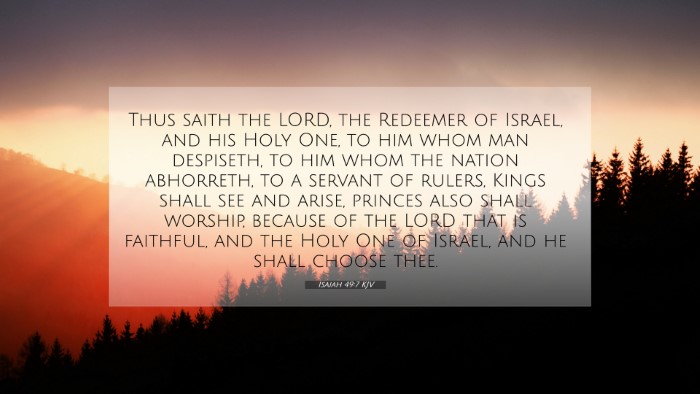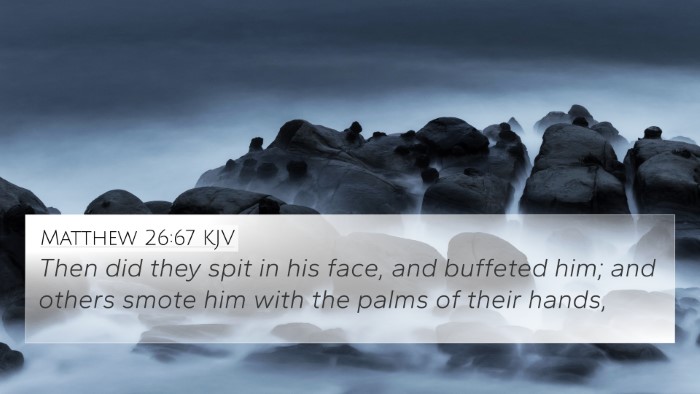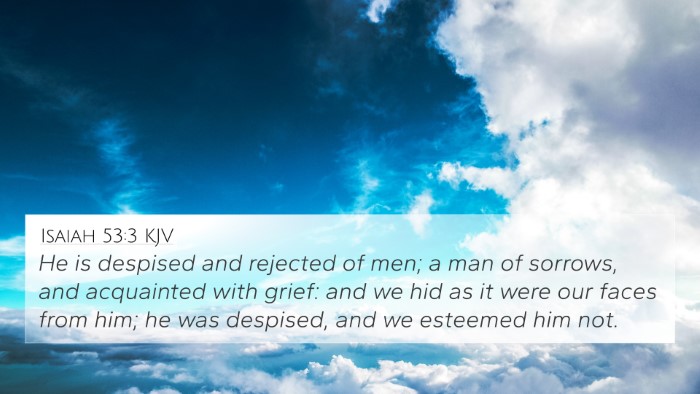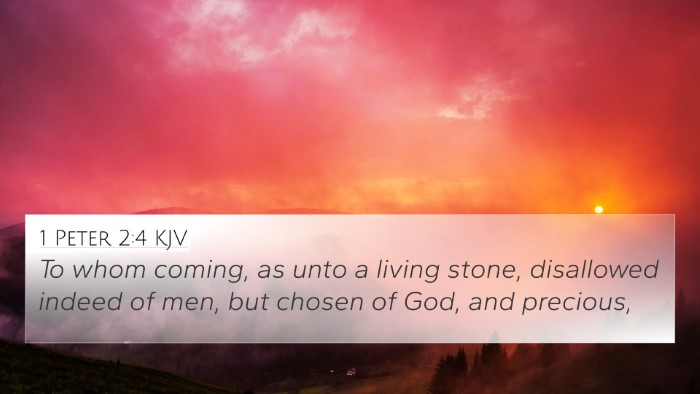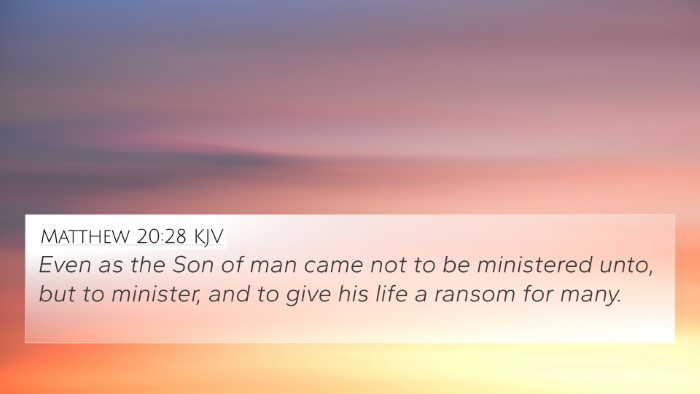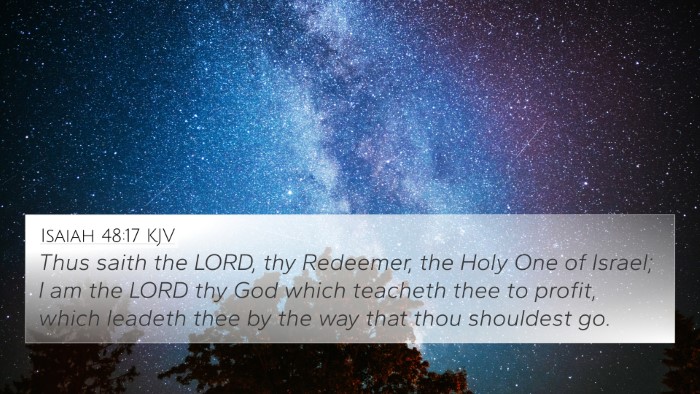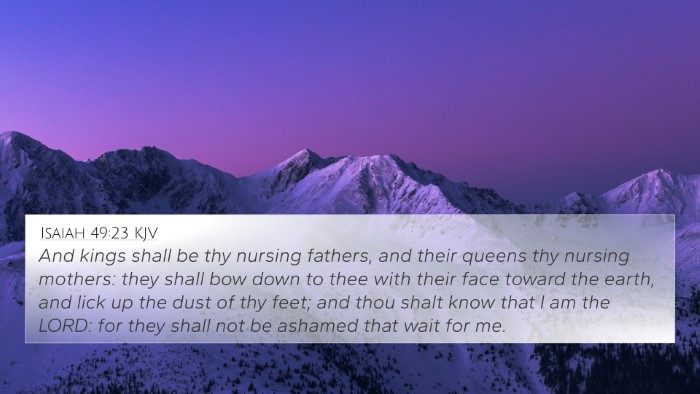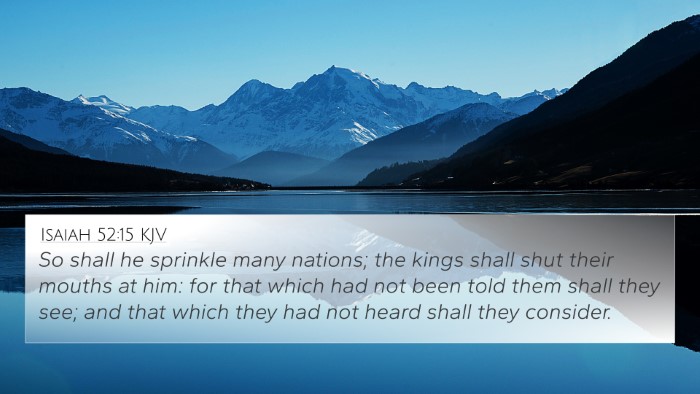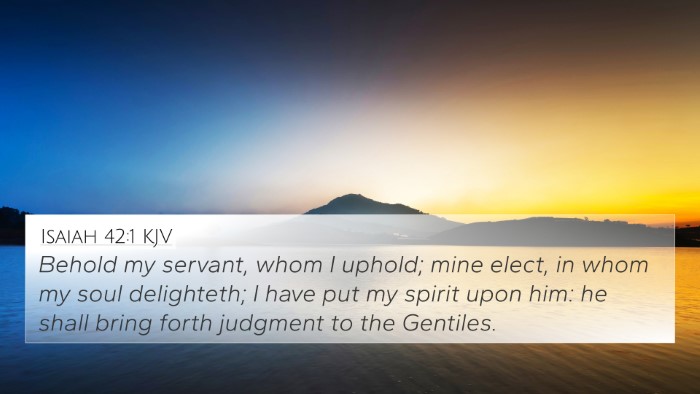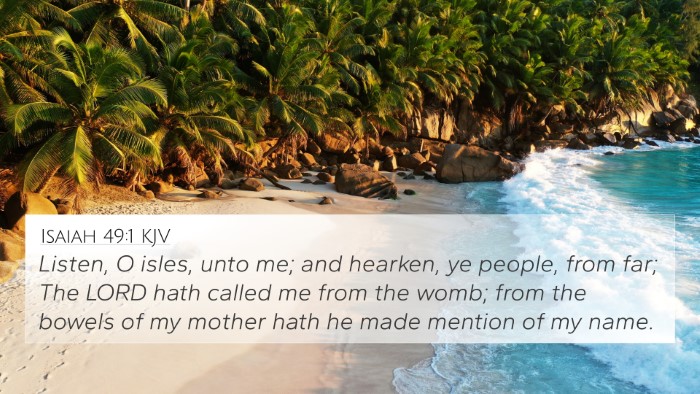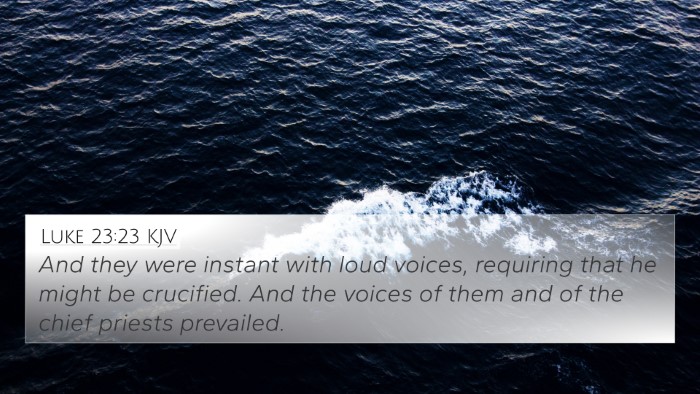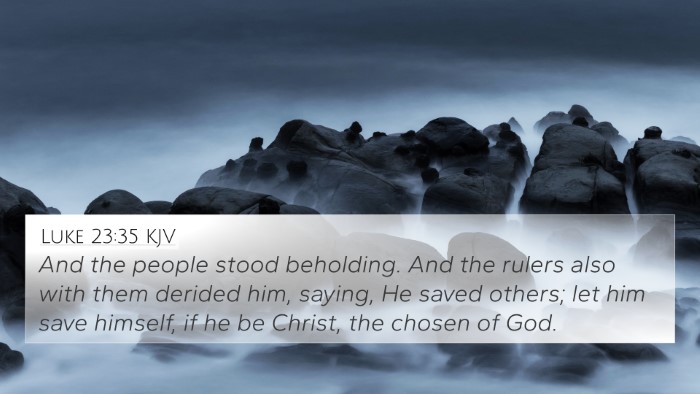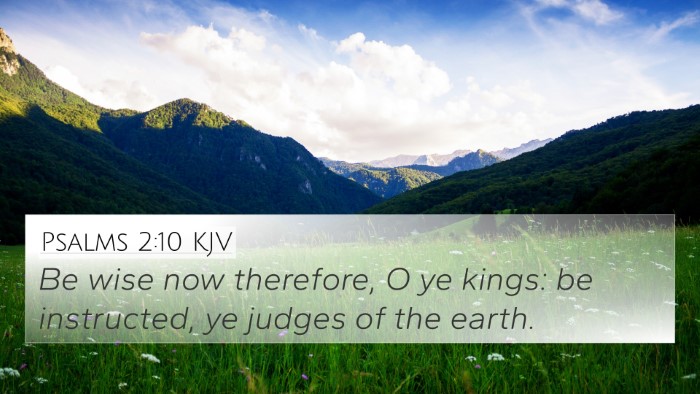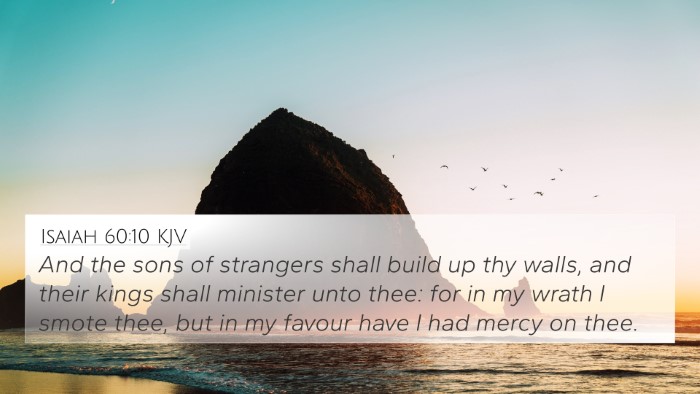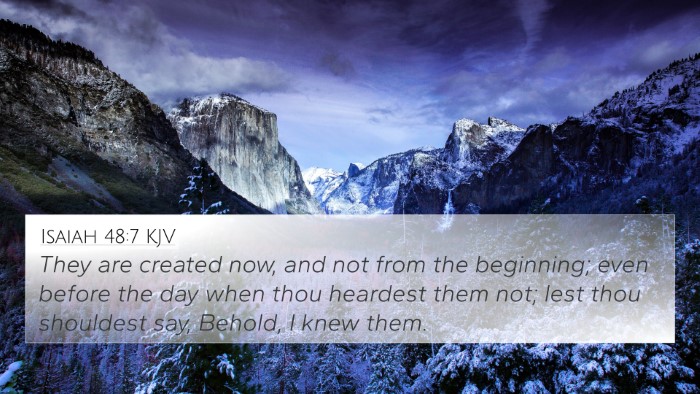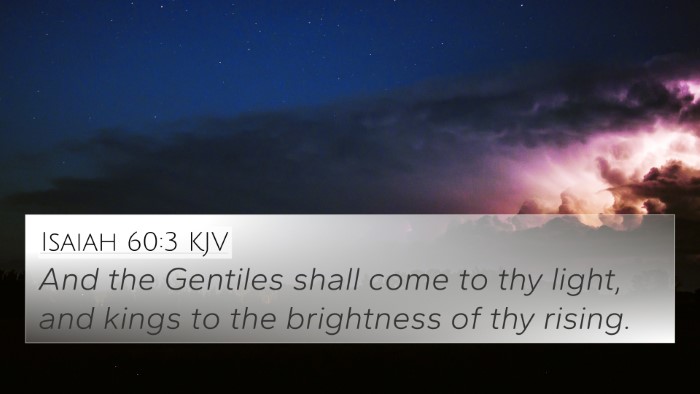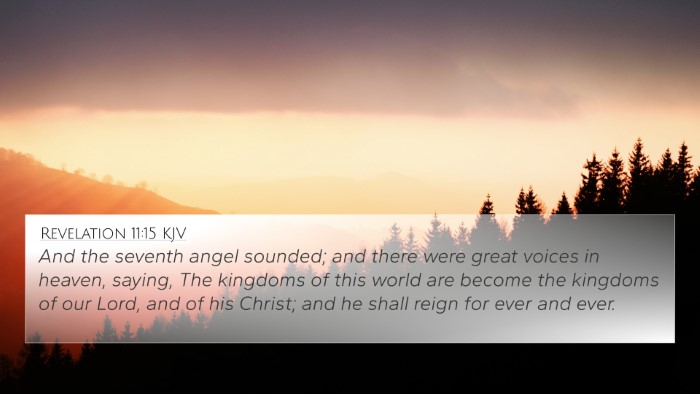Understanding Isaiah 49:7
Isaiah 49:7 presents a powerful message about the purpose and role of the Messiah, the servant of the Lord. This verse provides profound insights not only into the character of Christ but also into the nature of God's calling for His people and the ultimate plan of redemption.
Verse Context
“Thus says the LORD, the Redeemer of Israel, and his Holy One, to one deeply despised, abhorred by the nation, the servant of rulers: ‘Kings shall see and arise; princes, and they shall prostrate themselves; because of the LORD, who is faithful, the Holy One of Israel, who has chosen you.’” (Isaiah 49:7, ESV)
Summary of Meaning
This verse reflects a contrast between the servant's current state of being despised and abhorred and the future honor he will receive from rulers and nations. It emphasizes God's faithfulness and choice in selecting the servant, highlighting His role in redemption.
Key Themes
- The Nature of the Servant: The verse points to the Messianic figure who, despite rejection and scorn, is appointed by God for a divine purpose.
- Divine Selection: The emphasis on being chosen by God signifies the importance of divine will in the calling and mission of the servant.
- Contrast Between Present and Future: The transition from despised to revered underscores the eventual recognition of God's chosen one by earthly powers.
- God's Faithfulness: The faithfulness of the Lord is a central theme, assuring believers of His commitment to fulfill His promises.
Commentary Insights
Matthew Henry
According to Matthew Henry, this verse highlights the paradox of the servant's journey—the one who is rejected will ultimately be honored before kings. Henry points out the significance of recognizing God’s sovereign will in elevating His servant despite societal disdain.
Albert Barnes
Albert Barnes elaborates on the notion that the servant, largely misunderstood and insulted, will eventually draw notable attention from rulers. He emphasizes that this serves as a reminder of God’s power to change circumstances and the recognition of the humbled servant through divine providence.
Adam Clarke
Adam Clarke delves into the Hebrew interpretation of the verse, noting the richness in the language and the implications of being 'despised.' He sees this rejection as a reflection of the world's treatment toward God’s chosen vessels, yet reassures the faithful that, like the servant, they too are destined for vindication.
Bible Verse Cross-References
Several Bible verses are interconnected with Isaiah 49:7, showcasing thematic connections:
- Isaiah 53:3: Describes the Messiah as “despised and rejected” highlighting the suffering of the servant.
- Psalm 22:6: The psalmist speaks of being scorned, relating to the future experiences of the Messiah.
- Matthew 27:39-44: Refers to the mockery of Jesus during the crucifixion, connecting His suffering with the prophecy in Isaiah.
- Philippians 2:9-11: Illustrates the exaltation of Christ, aligning with the future glory indicated in Isaiah 49:7.
- Revelation 1:7: Discusses the coming of the Lord, affirming His recognition by all, as prophesied in Isaiah.
- Romans 14:10-12: Reflects the truth that every knee shall bow before Christ, paralleling the honor bestowed upon Him.
- Lamentations 3:34-36: Speaks to the justice of God in His dealings, affirming the righteousness behind God's selection of the servant.
Connections between Bible Verses
Isaiah 49:7 serves as a vital link in the narrative of Scripture, connecting themes of rejection, redemption, and divine authority. This thematic analysis suggests:
- Cross-referencing with the Gospels reveals how the prophecy is fulfilled in Jesus' life and ministry.
- Links between the Old Testament and New Testament portray a cohesive message about God's redemptive plan.
- Comparative analysis of prophetic texts highlights the continuity of God's promise across Scriptures, emphasizing His overarching plan.
Cross-Referencing in Bible Study
Using a Bible concordance and tools for Bible cross-referencing can greatly enhance one’s study. Understanding the interconnections between verses allows believers to grasp deeper theological insights and encourages a comprehensive approach to Scripture interpretation.
Using Bible Cross-Reference Systems
Engaging with a cross-reference Bible study aids in uncovering links between verses, helping individuals identify the thematic ties and enriching their understanding of Biblical texts.
Conclusion
Isaiah 49:7 is a profound reminder of the themes of rejection and subsequent exaltation that follow God's chosen servant. The verse invites believers to reflect on the nature of divine selection, the faithfulness of God, and the honor that awaits the faithful. Understanding this verse, alongside its cross-references and commentaries, deepens the appreciation for God's redemptive narrative woven throughout Scripture.


